Female Genital Mutilation (FGM)

Female Genital Mutilation is the ritual removal of some or all of the external female genitalia. It is estimated that worldwide 200 million women have undergone FGM, mostly in Africa.
Though most girls are cut before the age of five, it may be done anytime from a few days after birth , up to puberty and beyond.
The extend of the damage caused by these practices differs from partial or total removal of the clitoris (Type I), to removal of the inner labia (Type II or excision) to removal of both inner and outer labia and closure of the vulva, known as infibulation of pharaonic type FMG (Type III)
In the last case only a small opening is left to pass urine and menstrual flow. The vagina later will have to be opened for intercourse, and further again for childbirth.
Risks and complications increase with the type of mutilation. Physical consequences are numerous; fatal bleeding, recurrent infections, difficult urination, chronic pain, development of fistulae, infertility and complications during childbirth.
In the Gambia it is estimated that 76.3% of the women and girls have undergone FGM. Prevalence rates vary between different ethnic groups: Serahule (up to 98%), Diola (87%), Serer (43%) and Wolof (12%).
FMG is more common in rural area’s then it is in urban area’s. Th majority of FGM in the Gambia are Type I, 26% are Type II and 8% Type III.
Other Traditional Practices
Vaginal Tobacco or Herbs

Tobacco is an umbrella name given to over 70 species of plants in the genus nicotiana and the family Solanaceae. It is used to refer to the cured leaves of these plants.
The active ingredients in tobacco are nicotine and harmine, a beta-carboline and a harmala alkaloid that occurs in several different plants. The nicotine component in tobacco makes it addictive to its users.
While a lot of people know that tobacco leaves are mainly smoked in cigarettes, cigars, shisha, chewed or taken as snuff, little is known about tobacco as a sexual stimulant in Africa. Of particular interest is vaginal tobacco, the practice of using tobacco leaves on the vagina, with unproven claims that it improves sensation during intimacy, increases fertility, and tightens the vagina.
There are reports of wide use of tobacco for this purpose by women in the Gambia and Senegal. Medical research shows that inserting anything in the vagina increases the risk of vaginal infection. There is a high risk of systemic absorption of the chemical constituents of tobacco into the blood stream causing damage to other parts of the body. Exposing the genitals to tobacco smoke may also cause ectopic pregnancies and negatively impact fertility.
Vaginal Douching
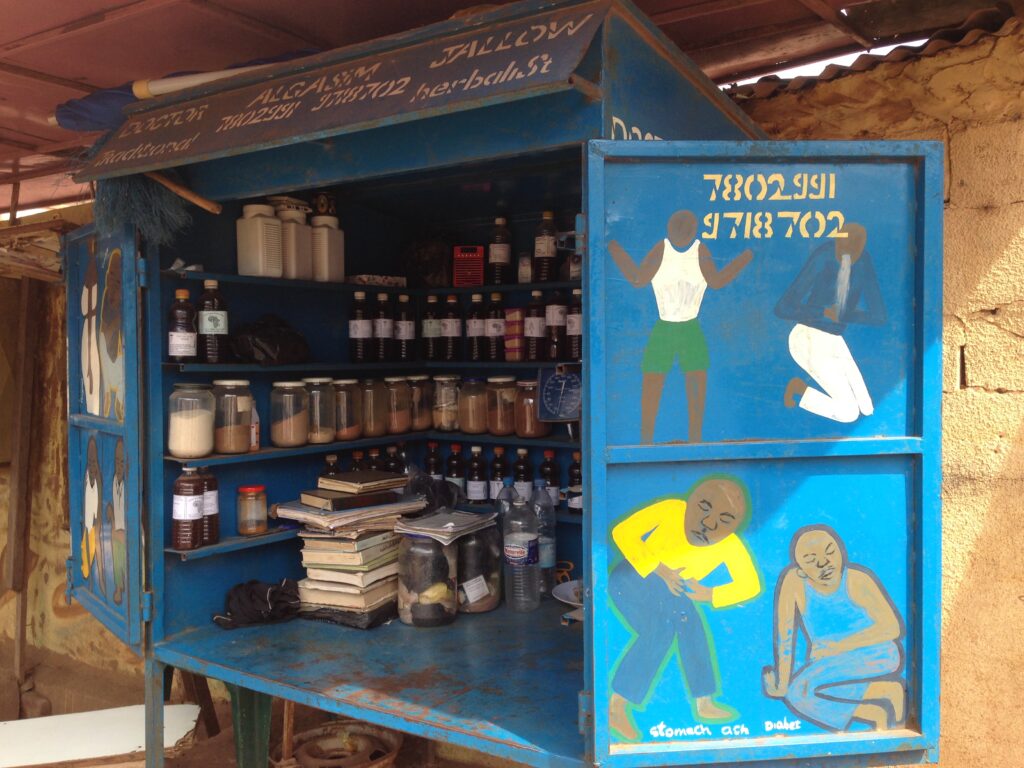
Vaginal douching is a commonly used method to wash out the vagina with water or a mixture of water and soap, Dettol or other solutions.
Douches that are sold in drugstores and supermarkets contain antiseptics and fragrances.
Besides making them feel fresher, women say they douche to get rid of unpleasant odors, wash away menstrual blood after their period, avoid getting sexually transmitted diseases and prevent a pregnancy after intercourse.
However, health experts say douching is not effective for any of these purposes. On the contrary, it can actually increase the risk of infections, pregnancy complications and other health problems.
Regular vaginal douching changes the delicate balance of vaginal flora (organisms that live in the vagina) and acidity in a healthy vagina. These changes can cause overgrowth of bad bacteria which can lead to infection. Douching itself can push existing infections further up into the uterus, fallopian tubes and ovaries. Possible effects of vaginal douching include:
- Vaginal infection (bacterial vaginosis) which can increase the risk of preterm labor and endometriosis
- Pelvic inflammatory disease (PID) An infection of the uterus, fallopian tubes and/or ovaries
- Pregnancy complications Women who douche more than once a week have more difficulty getting pregnant than those who don’t. Douching may also increase the risk of ectopic pregnancy (pregnancy outside the womb) by as much as 76%.
- Cervical cancer Douching at least once a week has been linked to a possible increased chance of developing cervical cancer.
Polygamy
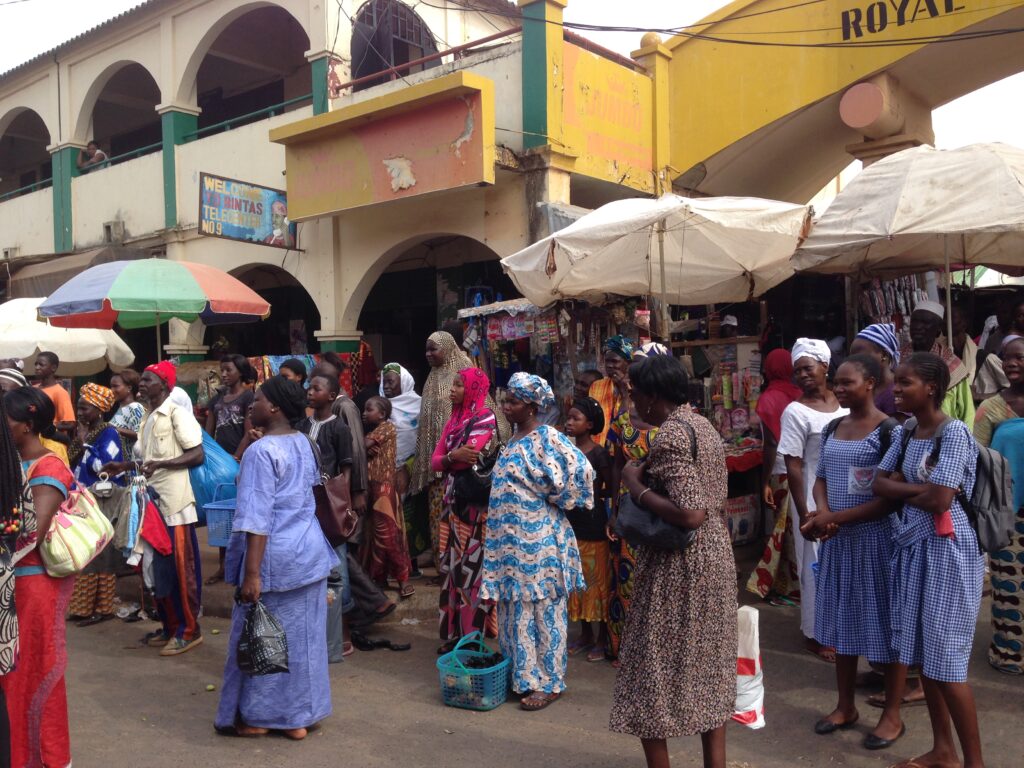
In the Gambia polygamy is a widely accepted (also widely debated) practice. Islamic tradition allows a man to marry up to four wives. They are usually referred to as co-wives. The highest status wife is the first wife.
Usually a man’s first wife will be a woman about his same age, but other wives who are married over the years tend to be much younger and in some cases wives can be over half their age. Partly due to the fact that older men marry the available younger women, men tend to marry at an older average age (29) than women, who marry at an average age of 19.
Polygamy is losing popularity among the younger generation of men who see first-hand the economic ramifications of supporting a large family on a limited income. Many of this current Gambian generation prefers to have just one wife.
However, polygamy is only allowed by Islam if he can support the extra partner otherwise it is forbidden. This rule has not stopped many Gambians of the older generation marrying more than one wife knowing full well they will run into difficulties. The reason for this is because multiple marriages are seen as a status symbol in Gambia.
Child Marriage
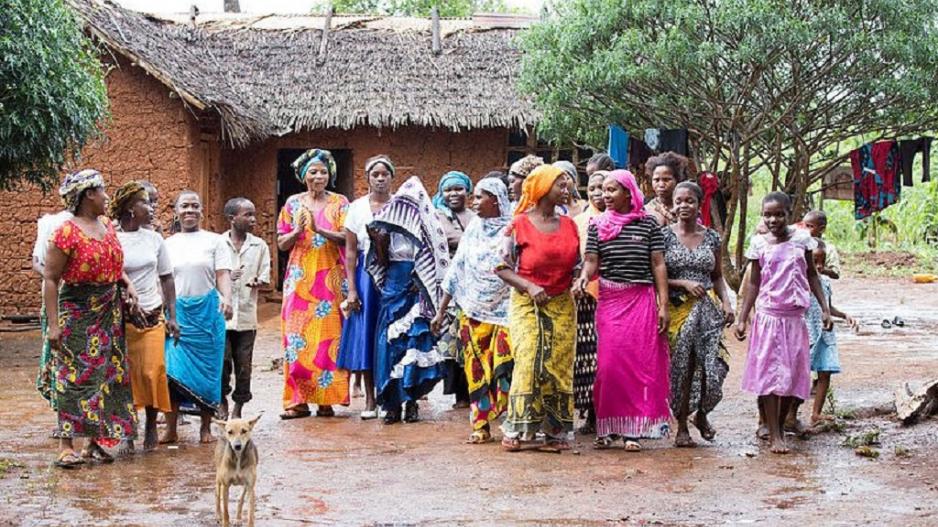
According to UNICEF, 36% of girls in the Gambia are married before the age of 18, and approximately 7% are married before 15. Gambia joins the growing list of countries to launch the African Union (AU) Campaign to End Child Marriage in Africa.
On 16 June 2016, Gambia launched a two-week campaign to end child marriage in the country. Under the leadership of the then First lady of The Gambia, Mrs. Zineb Yahya Jammeh, the campaign aimded to mobilise grassroots organisations nationwide and raise awareness of the risks of child marriage.
Child marriage is driven by gender inequality and the belief that women and girls are somehow inferior to men and boys. In The Gambia, child marriage is also driven by:
Level of education: Girls without education tend to marry at a younger age than those who have completed primary or secondary school.
Poverty: Girls from The Gambia’s poorest households are more likely to marry as children. Prospective husbands often give their parents money or jewelry or make promises, such as sending them to Mecca, in order to secure marriages.
Pre-marital sex: Some parents reportedly marry off their daughters in order to avoid them becoming pregnant before marriage. Child marriage is also commonly perceived to offer some form of child protection in that it prevents girls from being propelled into sex work.
Gender norms: Child marriage is generally considered a positive part of life and tradition in society, which is perceived to prepare girls for life.
Source: Girls not Brides
Child Mortality
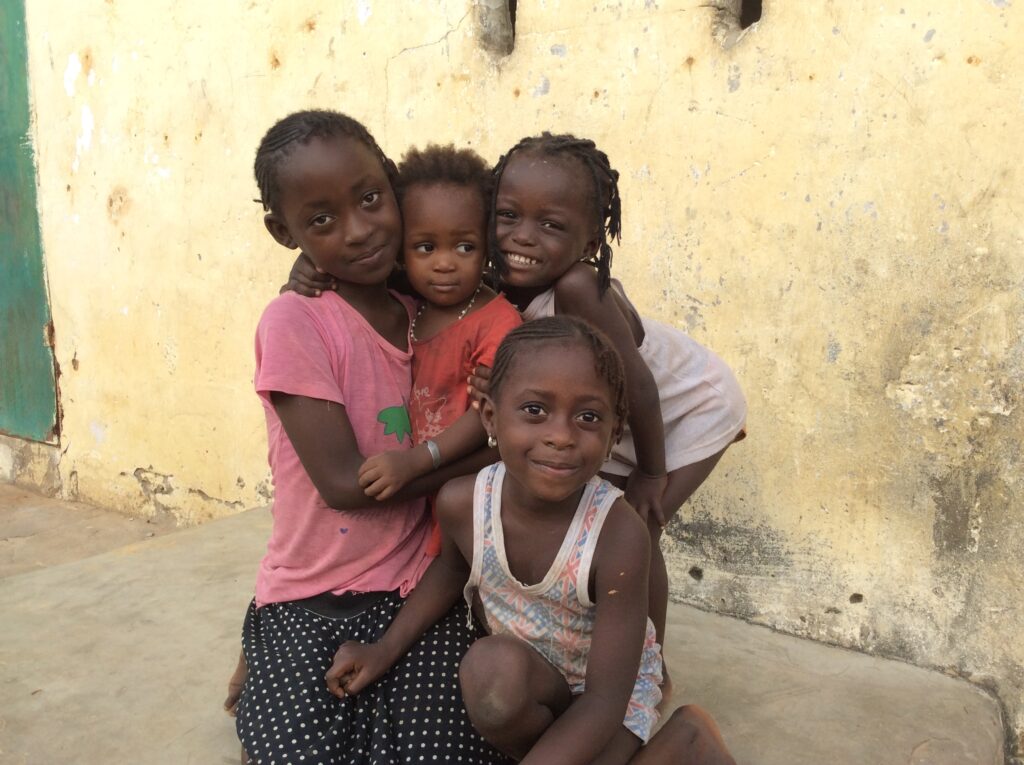
According to the MICS 2018 survey, under-five mortality in The Gambia is at 57 per 1,000 live births; infant mortality is at 41 per 1000 live births; and neonatal mortality is at 31 per 1,000 live births.
Like most developing countries, preventable and treatable diseases like malaria, respiratory infections, diarrhoeal disease, malnutrition, and neonatal sepsis are largely responsible for childhood mortality and morbidity in The Gambia.
There has been a steady decline in mortality rates, however for neonatal mortality (deaths occurring within the first 28 days of life) there has been a slight increase from the last 5 years from 28 to 31/1000 live births. This trend is worrying and needs urgent attention. The maternal mortality ratio is 433 per 100,000 live births, and accounts for 36 per cent of all deaths among women aged between 15 and 49 years old according to the demographic and health survey 2013.
These statistics are compounded by a weak health sector, due to insufficient financial and logistical support, a deteriorating physical infrastructure, lack of supplies and equipment, shortages of adequately and appropriately trained health personnel, high attrition rates, and an inadequate referral system.
Despite the challenges, The Gambia continues to make gains in primary health care (PHC) coverage, especially in immunization coverage, to ensure protection from vaccine-preventable diseases.
Source Unicef Gambia
Family Planning

In The Gambia, UNFPA works with the Government of The Gambia and other partners to ensure a steady and reliable supply of quality contraceptives, strengthen the national health system, advocate for policies supportive of family planning and gather data to support this work.
Currently, women of Reproductive age (15-49) account for about 569,994 of the country’s population. The unmet need for Family Planning is currently at 24%. The country’s Total Fertility Rate (TFR) has seen a decline from 5.4% in 2013 to 4.4% in 2019/2020. Overall, 14% of adolescents have begun childbearing.
The Government of The Gambia, in the National Health Strategic Plan (2014-2020), has articulated a need to reduce maternal and newborn mortality in the country using Family Planning as a key strategy for realizing this goal. However, there are several challenges facing the Family Planning programme especially with regards to rumors and misconceptions. Key among them are the belief that Family Planning is associated with promiscuity, that is against religious teachers or that it leads to infertility, among many others misconceptions. These challenges are coupled with strong opposition from men who are the key decision makers in the home. Other challenges include shortage of health providers, insufficient capacity to provide services and inadequate infrastructure and supplies especially in the rural areas and hard-to-reach communities.
Overall, contraceptive use has more than doubled in The Gambia from 2013 to 2019-20. This can be attributed primarily to increased use of all methods (from 9% in 2013 to 19% in 2019-20). The total demand for Family Planning among currently married women increased from 34% in 2013 to 43% in 2019-20. 40% of the total demand is satisfied by modern methods.
Currently, UNFPH is the sole provider of modern contraceptive commodities for all public health facilities in The Gambia. In order to realise access to information and services for women in communities furthest behind, UNFPA Supplies has supported the establishment of a Community Based Family Planning Program in The Gambia also called the Community-Based Distribution (CBD) programme, and has since expanded and strengthened the programme to bring services closer to over 150 underserved and hard-to-reach communities.
Out of a total of 146 health facilities, 64.4 per cent offer at least five modern contraceptive methods compared to 98.5 per cent that offer at least three modern contraceptive methods. Generally, new family planning acceptors have been on a steady increase .
UNFPA has also supported the development of a National Family Planning Policy, a Costed Implementation Plan and a Communication Strategy for the Ministry of Health, in order to aid effective Family Planning programming to benefit everyone, everywhere in The Gambia.
Sexually Transmitted Diseases (STD’s)
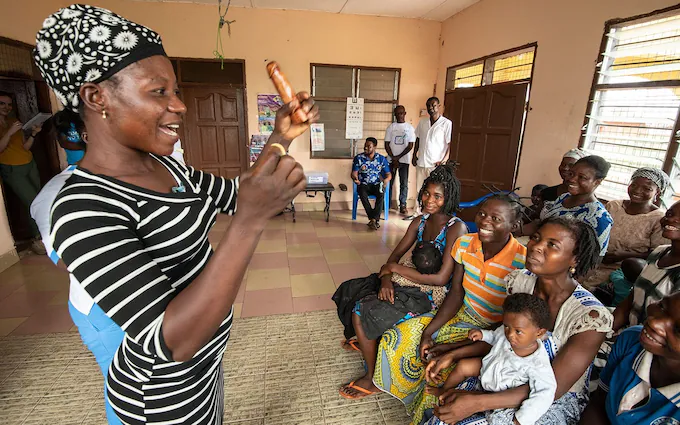
In the Gambia, sexually transmitted infections (STIs) and their complications are a major health problem and although the prevalence of HIV-1 in the Gambia is currently low, it is increasing.
STD’s, sexually transmitted diseases are bacterial, viral or parasite infections that are transmitted through unprotected sex (vaginal, anal or oral) or skin to skin genital contact.
There are more than 20 types of STDs, including: Chlamydia, Genital herpes, Gonorrhea, HIV/AIDS, HPV Pubic lice, Syphilis, Trichomoniasis. STDs can be caused by bacteria, viruses, and parasites. Most STDs affect both men and women, but in many cases the health problems they cause can be more severe for women. If a pregnant woman has an STD, it can cause serious health problems for the baby.
Chlamydia and gonorrhea are important preventable causes of pelvic inflammatory disease (PID) and infertility. Untreated, about 10-15% of women with chlamydia will develop PID. Chlamydia can also cause fallopian tube infection without any symptoms. PID and “silent” infection in the upper genital tract may cause permanent damage to the fallopian tubes, uterus, and surrounding tissues, which can lead to infertility.
Though there are hardly any statistics to be found on this in the Gambia STD’s are certainly endemic. Sex tourism, and in lesser extend also polygamy contribute to the spreading of them.
HIV and AIDS in Gambia
In 2018, the Gambia started implementing WHO’s recommendation to provide all people living with HIV with lifelong antiretroviral therapy (ART) regardless of clinical status or CD4 cell count. Between 2015 and 2020, impressive progress happened as new infections were cut by half and new infections among children were reduced by 75% (National AIDS Strategic Plan,2020-2025). All pregnant women attending antenatal clinics are routinely offered HIV tests, and all pregnant women living with HIV are eligible for ART (Option B+). Until the COVID-19 epidemic started, ART uptake had increased significantly